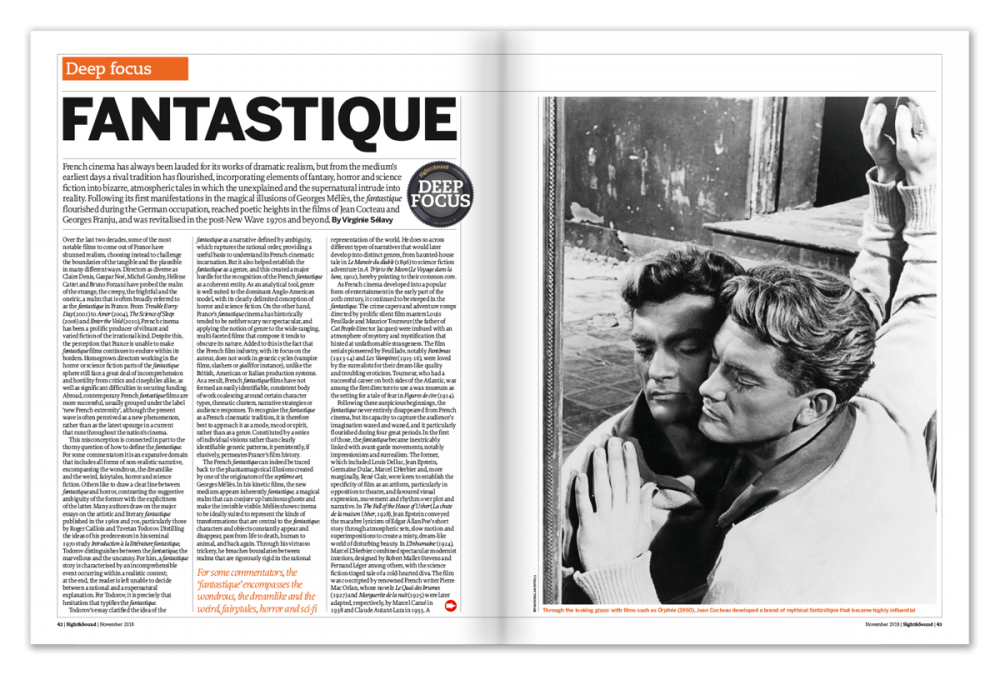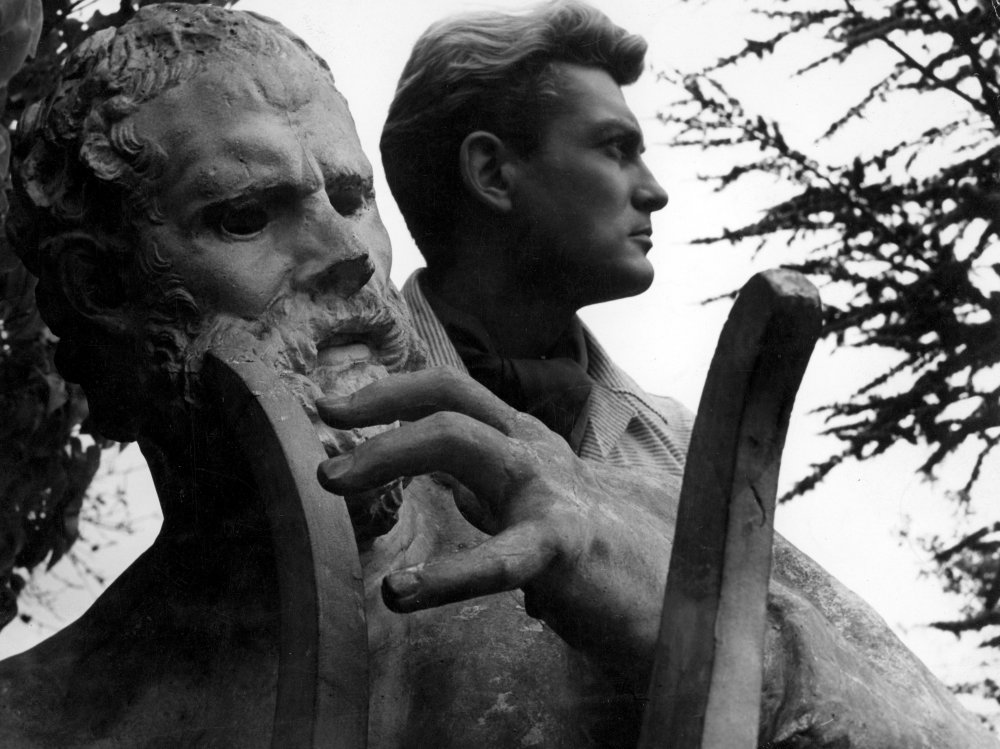Jean Cocteau‘s latest film is a modern re-telling of the Orphic myth. In a plot synopsis it is not possible to describe the atmosphere or the astonishing fantasy of this film: broadly speaking, it may be taken as a symbolic drama of a poet’s conflict between the real world and the world of imagination and the unknown, as represented by Death and her associates. Cocteau adds his own extra dimension to the original myth – by making the dead human beings with human feelings and desires, and it is perhaps this above all which makes for the marvellously successful balance of the real and the magical in the film.
France 1950
Certificate PG 95 mins
Director Jean Cocteau
Cast
Orphée Jean Marais
Hertebrise François Périer
The princess Maria Casarès
UK re-release date 19 October 2018 as the centrepiece of Sight & Sound Deep Focus: Fantastique – The Dream Worlds of French Cinema through November 2018 at BFI Southbank
Distributor BFI
bfi.org.uk/whats-on/bfi-film-releases/orphee
► Trailer
It encompasses both levels with power and fascination: its picture of a poet’s torment and obsession with the unattainable is something unique in the cinema. It is, in fact, no exaggeration to say that Orphée, as well as being the most complete and successful achievemeht of Cocteau in the cinema, is a film as revolutionary today as was, for instance, Caligari in its time. And it has the advantage over Caligari, in its departure from the real, that it does not succumb to theatre conventions.
Orphée extends the frontiers of the cinema and is an inimitable, unique experience. Its importance in the future will be as great as any of the other major films of the last ten years or more.
- Orphée is the centrepiece of the Sight & Sound Deep Focus season Fantastique: The Dream Worlds of French Cinema, running 22 October-30 November 2018 at BFI Southbank. A parallel Jean Cocteau retrospective runs 23 October–18 November at the Institute Français’s Ciné Lumière.
In the November 2018 issue of Sight & Sound

Deep focus: Fantastique
French cinema has always been lauded for its works of dramatic realism, but from the medium’s earliest days a rival tradition has flourished, incorporating elements of fantasy, horror and science fiction into bizarre, atmospheric tales in which the unexplained and the supernatural intrude into reality. Following its first manifestations in the magical illusions of Georges Méliès, the fantastique flourished during the German occupation, reached poetic heights in the films of Jean Cocteau and Georges Franju, and was revitalised in the post-New Wave 1970s and beyond. By Virginie Sélavy.
-
The Digital Edition and Archive quick link
Log in here to your digital edition and archive subscription, take a look at the packages on offer and buy a subscription.





